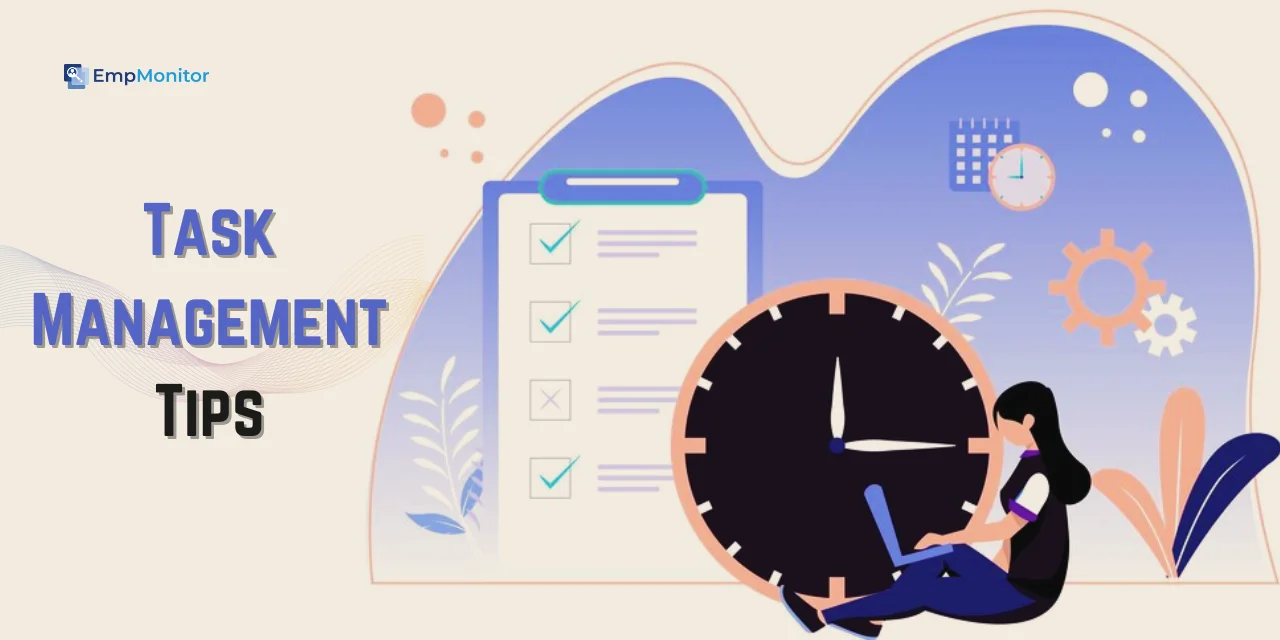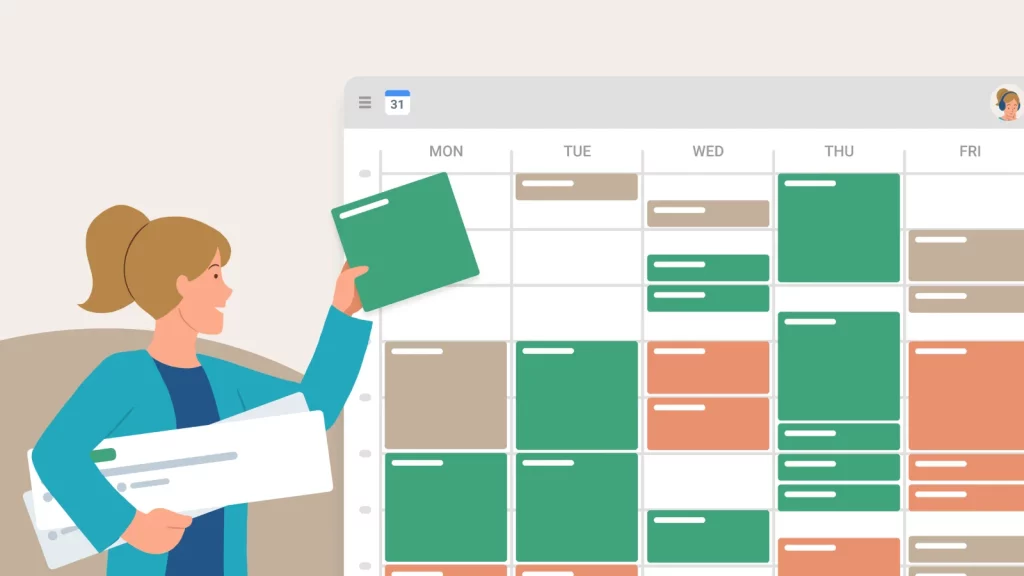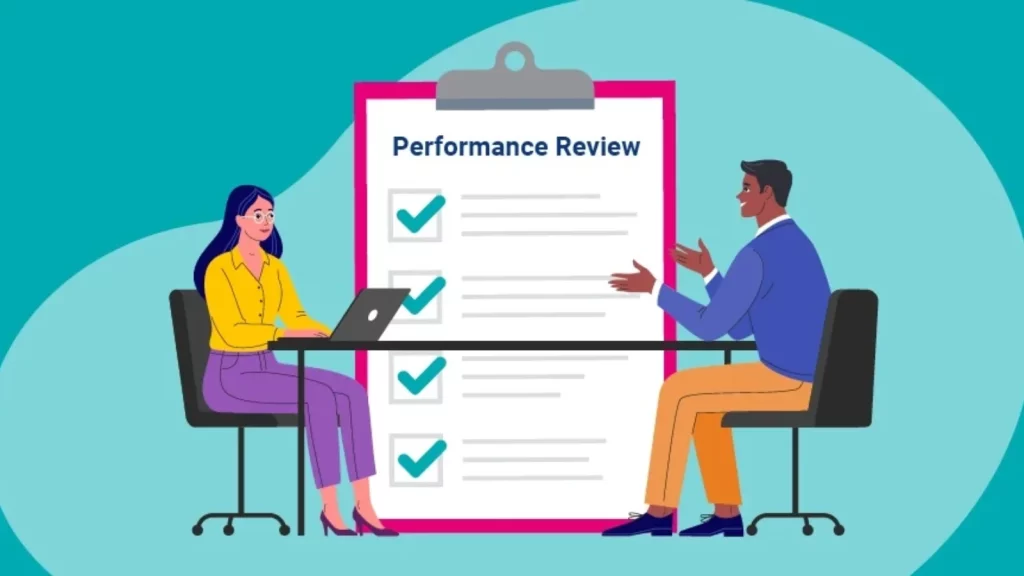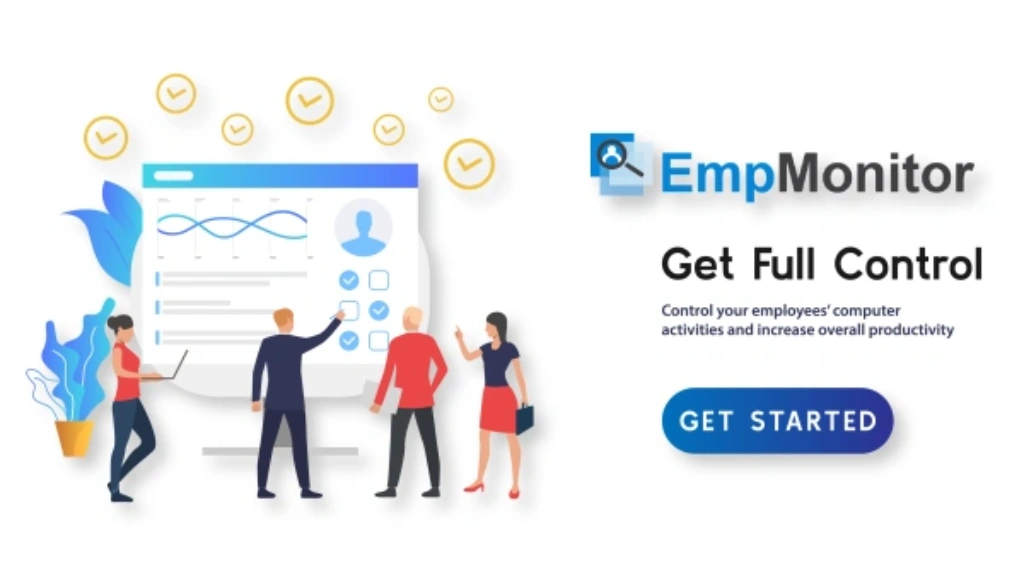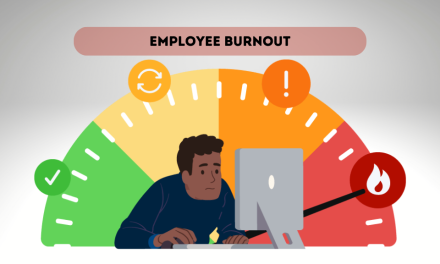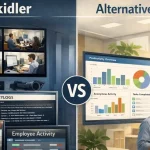It’s common to feel swamped for managers by the sheer volume of tasks that are aligned in a queue to get accomplished. Deadlines loom, emails flood in, meetings pile up, and it can be challenging to keep everything on track. This constant whirlwind of responsibilities can leave you feeling overwhelmed and questioning whether there’s a better way to manage it all. Fortunately, here we have shown some task management tips that could help you manage multiple tasks efficiently.
By implementing the right strategies and tools, you can regain control of your workload, increase productivity, and create smoother business processes.
This guide is your roadmap to mastering daily task management. We’ll explore practical tips, proven techniques, and innovative tools to help you optimize your workflow and achieve your goals with greater ease.
So, get ready to discover the secrets of efficient task management and unlock the full potential of your business. Let’s dive in and start transforming the way you work!
Hit ‘Play’ Button & Tune Into The Blog!
What Is Task Management?
Task management revolves around strategizing and completing tasks most efficiently. It entails overseeing tasks from initiation to completion, guaranteeing goal attainment. This process encompasses various elements such as task definition, prioritization based on urgency, delegation to team members, establishing timelines and deadlines, adapting as needed, and beyond.
Think of task management tips as your daily to-do list, focusing on immediate needs rather than long-term projects that span weeks or months.
For instance, if you’re managing a bakery, your daily tasks may revolve around baking a specific quantity of muffins.
In contrast, a long-term project and task management might introduce a new cake flavor over a month.
Daily tasks characterize their immediate focus and pinpoint what you should address regularly.
The beauty of daily task management lies in its ability to address immediate needs while laying the groundwork for larger goals. It’s akin to constructing a house brick by brick.
Why Is Task Management Essential?
The following are the reasons why managing your task is essential.
Alignment with Objectives: Robust task management ensures that teams are aligned with project objectives, allowing every task to contribute directly to overarching goals. This alignment is crucial for maintaining focus and driving progress.
Financial Discipline: By meticulously planning and tracking resources for each task, teams can stay within budget limits. This financial discipline is essential for preventing costly overruns and ensuring profitability.
Timely Delivery: Establishing clear timelines and monitoring progress against deadlines is essential for delivering projects on time. Timely completion satisfies stakeholders and enhances the company’s reputation for reliability.
Scope Management: Effective task management tips help mitigate scope creep by defining task scope and managing changes through structured processes. It prevents unnecessary deviations that could derail project progress.
Issue Identification and Resolution: Regular review and communication ensure that potential issues are identified early and addressed promptly, reducing the risk of project failure.
Task management strategies are the cornerstone of successful project execution, driving efficiency, accountability, and business growth.
Essential Task Management Tips for Managers
Effective task management is crucial for achieving daily goals and maintaining productivity. Here’s a detailed guide to help managers refine their task management skills and drive successful projects.
Start With A Clear Objective
Begin each day with a specific goal, like setting a destination before a journey. You can lose direction and waste your time without a clear objective. Daily goals provide purpose and direction, helping prioritize critical tasks. When you set clear objectives, you know what you need to achieve by the end of the day.
For example, if you aim to complete a project proposal by the end of the day, all your efforts will be directed towards that goal. Achieving these goals builds momentum and confidence for the following days, making your workflow smoother and more efficient.
Prioritize Ruthlessly
Not all tasks are equally important. Some may seem urgent but contribute little to long-term goals. High-achievers often prioritize tasks by importance, not by urgency. Utilizing task management tips and tools helps identify and focus on tasks that truly matter. This approach ensures you advance your business rather than merely reacting to immediate demands.
For instance, if you have both a minor client query and a vital project deadline, prioritize the project deadline because it has a more significant impact on your business.
Time Blocking
Allocate specific time slots for different tasks throughout the day. For example, dedicate 10 am to 11 am exclusively for checking emails. Time blocking promotes focus and productivity by allowing you to concentrate on one task at a time. This method helps prevent the common pitfall of task switching, which can drastically reduce efficiency.
Combining this method with the Pomodoro technique, which includes regular breaks, prevents burnout and maintains high productivity levels. For example, work for 25 minutes, then take a 5-minute break. It helps maintain high levels of focus and energy throughout the day.
Limit Multitasking
Attempting to handle multiple tasks simultaneously can reduce productivity significantly. Focusing on one task at a time improves work quality and efficiency. For instance, finish baking muffins before starting on a new cake flavor. One of the essential task management tips is to avoid multitasking, as it often leads to errors and decreased quality of work because you divide your attention into multiple works.
Focus on one task at a time. It ensures that each task gets the attention it deserves, leading to better results and higher-quality work. This single-task approach often leads to better results and can spark creative ideas because you are fully immersed in the task at hand.
Use a Task Management Tool
Utilize software tools to organize and manage your daily tasks, moving them and related communications from your email inbox to a unified platform. Leveraging technology simplifies task and project tracking, reduces manual effort, and ensures nothing is forgotten.
Tools like EmpMonitor offer features like task assignments, deadlines, progress tracking, and collaboration, making it easy to manage tasks efficiently.
Delegate Where You Can
Don’t try to do everything yourself. Assigning tasks to team members when appropriate is one of the most valuable task management tips. Delegation lightens your workload and empowers your team, fostering a collaborative environment. It allows you to focus on higher-level strategic tasks while your team handles operational duties.
Delegate tasks to junior team members if they can handle them and focus on tasks that require your expertise. This enables you to focus on strategic goals while your team feels trusted and valued, which boosts their morale and productivity.
Review and Adjust
At the end of each day, review the tasks you completed and those you didn’t. Reflect on what worked well and what didn’t. Regular reflection and adjustment lead to continuous improvement. This practice helps you understand your strengths and weaknesses in task management.
Learning from daily experiences helps refine your task management blueprints.
For example, if you notice that certain tasks are consistently left unfinished, you can adjust your approach by breaking them into smaller, more manageable parts.
Set Realistic Expectations
Be ambitious, but ensure your daily task management tips are achievable. Setting realistic goals prevents burnout and guarantees high-quality work. Overloading yourself with too many tasks can lead to mistakes, stress, and decreased productivity. It’s better to accomplish a few tasks well than to rush through many with subpar results.
For example, instead of planning to finish ten tasks in a day, aim for five key chores you can complete with high quality and attention to detail.
Avoid Procrastination
Address why you’re delaying tasks. Procrastination often stems from tasks feeling too big or unclear. Break down large, daunting tasks into smaller, manageable pieces. Tackling procrastination head-on promotes a proactive mindset.
For instance, if writing a report seems overwhelming, break it down into steps like researching, outlining, drafting, and editing. Completing small tasks quickly boosts motivation and keeps your workflow moving smoothly.
Stay Flexible
While having a plan is essential, be prepared to adjust as circumstances change. Flexibility allows you to adapt to unexpected changes and continue progressing.
For example, if a high-priority task suddenly arises, be willing to adjust your schedule to accommodate it. Like a sailor adjusting to the wind, staying adaptable ensures you stay on course despite unforeseen challenges. This ability to pivot and adapt helps maintain momentum and ensures that your overall goals are still met despite changes in your day-to-day plans.
Implement these task management tips into your daily routine to improve your task management skills, enhance productivity, and lead your team to success. Effective task management is not just about getting things done; it’s about getting the right things done efficiently and effectively.
How To Choose The Right Task Management Tool?
Here’s a practical guide to help you navigate the maze of options and make a confident decision:
Know What You Need: Before you start your search, take a moment to figure out what you’re looking for in a task management tool. Understanding your specific requirements will make the selection process much smoother.
Budget-Friendly Options: If budget is a concern, prioritize task management tips and tools that offer free plans or trial periods. This way, you can test out different options without committing financially.
Must-Have Features: Look for essential features like Kanban boards, task dependencies, and time tracking. These functionalities are vital for keeping your tasks organized and your team on track.
Ease of Use: Choose a tool that’s easy to use and doesn’t require extensive training. You want something your team can quickly adopt and integrate into daily workflow.
Learn from Others: Remember to read reviews from other users. Their experiences can provide valuable insights into the strengths and weaknesses of different tools.
After carefully considering your needs and exploring various task management software options, one tool that stands out is EmpMonitor. EmpMonitor helps businesses streamline their task management processes and optimize team performance. Providing comprehensive monitoring capabilities and task management tips enables managers to identify productivity bottlenecks.
Manage Your Tasks With EmpMonitor
EmpMonitor is an advanced productivity management and employee monitoring software designed to help businesses enhance efficiency, ensure data security, and maintain a productive workforce. It provides a comprehensive suite of features that enable employers to optimize employee activities in real time.
Real-Time Task Monitoring
EmpMonitor lets managers see the progress of tasks as they happen. It includes observing active projects and how team members spend time on various tasks. Real-time monitoring helps managers spot and address issues, ensuring tasks stay on track.
Screenshot Capturing
This feature captures periodic screenshots of employees’ desktops. It allows managers to verify employees’ assigned tasks progress. It promotes transparency and accountability by providing proof of work and ensuring employees stay focused on their tasks without getting distracted by non-work activities.
Activity Logs
EmpMonitor maintains detailed logs of task-related activities, including keystrokes, mouse movements, and application usage. This comprehensive task management tips and tracking helps managers understand how employees interact with various tools and documents, providing insights into productivity and identifying any inefficiencies.
Task Usage Tracking
This feature monitors the time employees spend on different task-related applications and tools. Managers can identify unproductive behaviors and optimize task allocation by tracking application usage. It ensures employees utilize the right tools for their tasks, enhancing overall efficiency.
Productivity Reports
EmpMonitor generates detailed reports that analyze task performance and team productivity. These reports compile data from monitoring activities to give a comprehensive overview of employee performance. Managers can use these insights to make informed decisions, identify areas for improvement, and implement strategies to boost productivity and task efficiency.
These top features of EmpMonitor help managers maintain oversight and control over task management.
Read More
Task And Project Management: Insider Tips For Success
7 Tips For Better Project Tracking & Deliver Projects On Time
Work Allocation: Efficiently Assign Tasks In 8 Steps!
How To Master The Change Management Process Effectively?
Team Task Management Skills Managers Should Possess
Despite the manager’s best efforts, many projects face significant challenges. Research shows that 47% of agile projects encounter problems like delays, budget overruns, or customer dissatisfaction. Moreover, only 29% of projects are typically finished on time. To make things even more challenging, 67% of project managers report that projects have grown more complex over the past decade.
Whether you’re an experienced manager looking to refine your skills or someone new to a management role, honing these essential task management tips and skills can significantly improve your ability to manage successful projects:
Prioritization Skills: The ability to rank tasks based on their importance and urgency helps focus on- tasks critical to the project’s success, ensuring that key objectives are met on time. For example, a manager who can effectively prioritize might decide to focus resources on fixing a critical bug in a software project before adding new features.
Delegation Skills: Knowing when and to whom to assign tasks ensures that tasks are handled by the right people, optimizing productivity and leveraging team strengths. An example of this is delegating complex data analysis to a team member with strong analytical skills while assigning documentation tasks to someone with a knack for writing.
Communication Skills: The ability to convey task management tips and information clearly and keep the team informed and motivated ensures that everyone understands their roles, the project’s status, and any changes that occur, reducing misunderstandings and errors. Regular updates and feedback sessions keep team members aligned and motivated.
Planning Skills: Setting realistic goals and outlining steps to achieve them provides a clear roadmap for the project, helping to manage time and resources effectively. Creating a detailed project timeline with milestones and work allocation deliverables can help ensure the project stays on track.
Problem-Solving Skills: The ability to quickly address and resolve issues helps to keep the project moving forward despite obstacles, minimizing downtime and disruptions. A manager who quickly troubleshoots and solves a technical issue prevents it from delaying the entire project.
Adaptability Skills: Being flexible and able to adjust plans as project scopes or deadlines change allows managers to respond effectively to changes and unforeseen challenges, ensuring the project remains viable. Adapting the project plan to accommodate a sudden change in client requirements without derailing progress is a good example of work management tips and skills.
Leadership Skills: The ability to inspire and lead a team toward achieving project objectives maintains high team morale and fosters a productive work environment. A manager who leads by example and encourages collaboration can boost team performance and project success.
Attention to Detail: Ensuring that tasks are completed accurately and thoroughly helps maintain high quality and prevents errors that could lead to rework or project delays. Reviewing each task carefully before marking it as complete ensures that standards are consistently met.
Technology Proficiency: Using project and task management tools effectively streamlines processes and improves efficiency, allowing for better tracking and work management of project tasks.
These skills form the foundation of strong project management and are essential for overcoming the common challenges managers face in today’s dynamic work environment.
Wrapping Up
Effective task management is essential for any business looking to optimize productivity and achieve its goals. By implementing the right strategies and project management tools, managers can transform chaos into order, ensuring team members know their responsibilities and deadlines.
You will meet deadlines, maintain a balanced workload, and reduce stress by utilizing task management tips. Remember, the key to successful task management is consistency and adaptability. Regularly review and adjust your strategies to fit the evolving needs of your business.
Mastering task management will lead to a more organized, productive, and motivated team, paving the way for your business to thrive in today’s competitive landscape.

